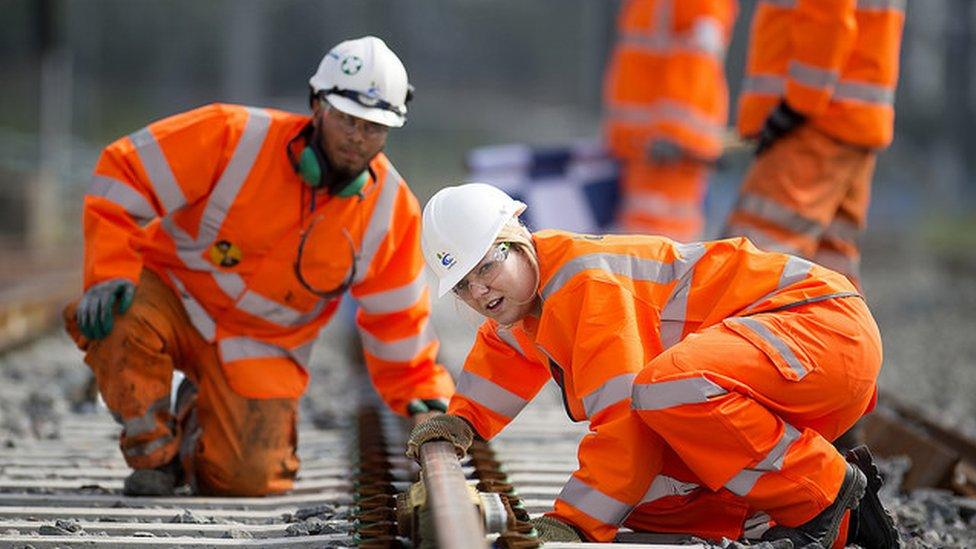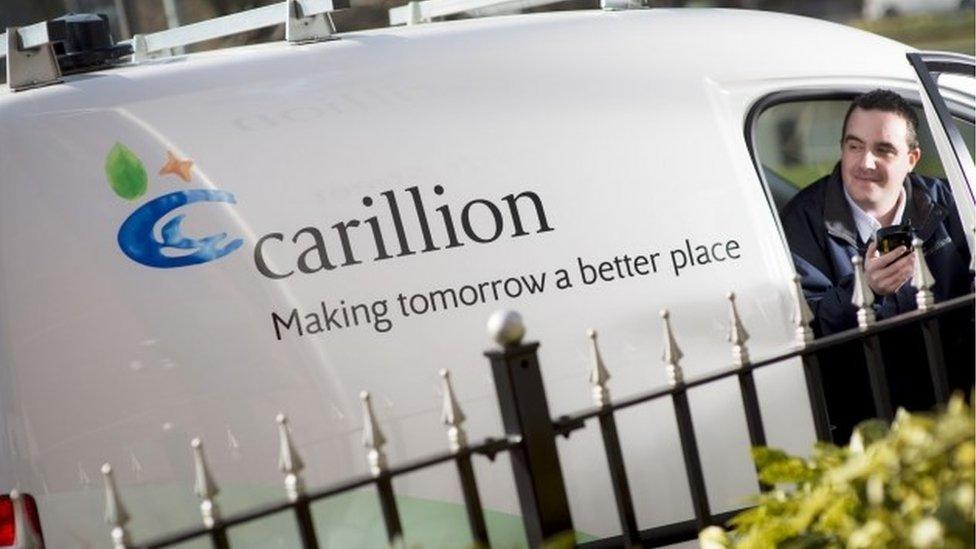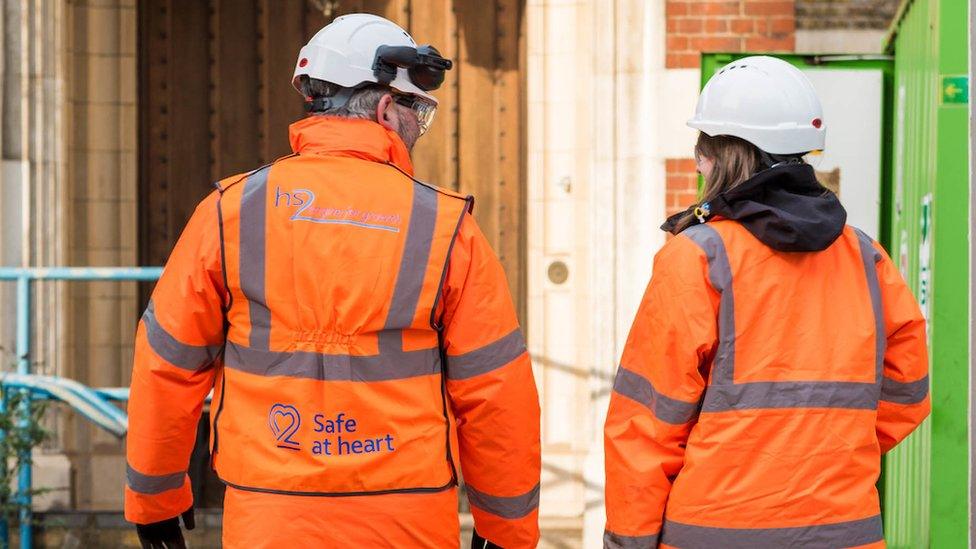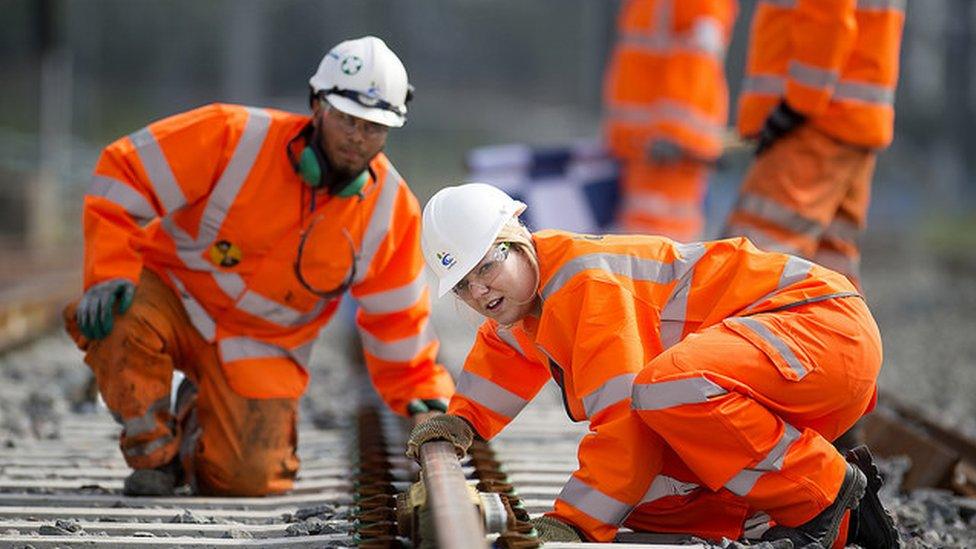Carillion is on government radar
- Published
- comments

Carillion may not be a household name since it was spun off from Tarmac in the late 1990s, but is a major partner to the government, including contracts to build parts of HS2, and manage nearly 900 schools.
It is the UK's second largest construction company and employs 43,000 people worldwide.
For all that, at the end of this year, the company will owe ten times more than the entire company is worth today.
It has lost 90% of its value in the last year and financial markets are betting it could go lower still.
Trigger point
The government has reason to be concerned.
It put out a statement today acknowledging the company as a "major supplier" and said it was awaiting further updates on its progress in restructuring the company.
Falling revenues, rising costs and project delays in the Middle East have led to a string of profit warnings and left the company fighting for survival.
Carillion said today it will be in breach of its loan conditions - or covenants - to its lenders at the end of this year - which can be a trigger for a company's collapse into administration.
We are not there yet, but Carillion's continued survival depends on its lenders taking the view that its worth more as a going concern than a collection of assets for sale.
Survival options include a takeover by another company, the lenders taking a hit by writing off their debt in return for shares or, the sale of shares to new investors.
Survival bet
The first seems unlikely - as an insider at a competitor told me "if we wanted loss making contracts we could write our own".
Not only that, but any buyer would have to take on Carillion's £600m pension deficit.
The most likely route to survival is a combination of a debt for equity swap alongside a fresh injection of capital.

This once blue-chip company has still been winning contracts and it recently hired a new chief executive, who is due to start in April, so the fact that the shares are worth anything at all means some are betting it can survive.
Mood music
A high profile bust would come at a bad time for a government keen to big up its economic dynamism.
Next week's unveiling of its Industrial Strategy and the chancellor's budget are expected to feature investment in housing and infrastructure.
Having the UK's second biggest construction firm go under would not improve the economic mood music.
The government is monitoring the situation but might find it hard to do more than that.
Some have said that Carillion is "too big to fail" but Carillion is not RBS and the Treasury might take the view it is "too small to save" and would prefer to let the market do its work.
Significance
Having said that, the government made an offer (which was never taken up) to take a 25% stake in Tata Steel to save it 4,000 steel jobs in what would have been the biggest state intervention in industry since the 1970s.
With Labour leader Jeremy Corbyn at the gate and a self-declared appetite for more government involvement, it's hard to rule out some sort of assistance for such a strategically significant company.
It's not just the government and employees who are watching anxiously.
There are thousands of smaller contractors and suppliers who rely on payments from Carillion to pay their own bills.
They will be hoping this once-blue chip name can find a way out of the red.
- Published17 November 2017

- Published17 July 2017
